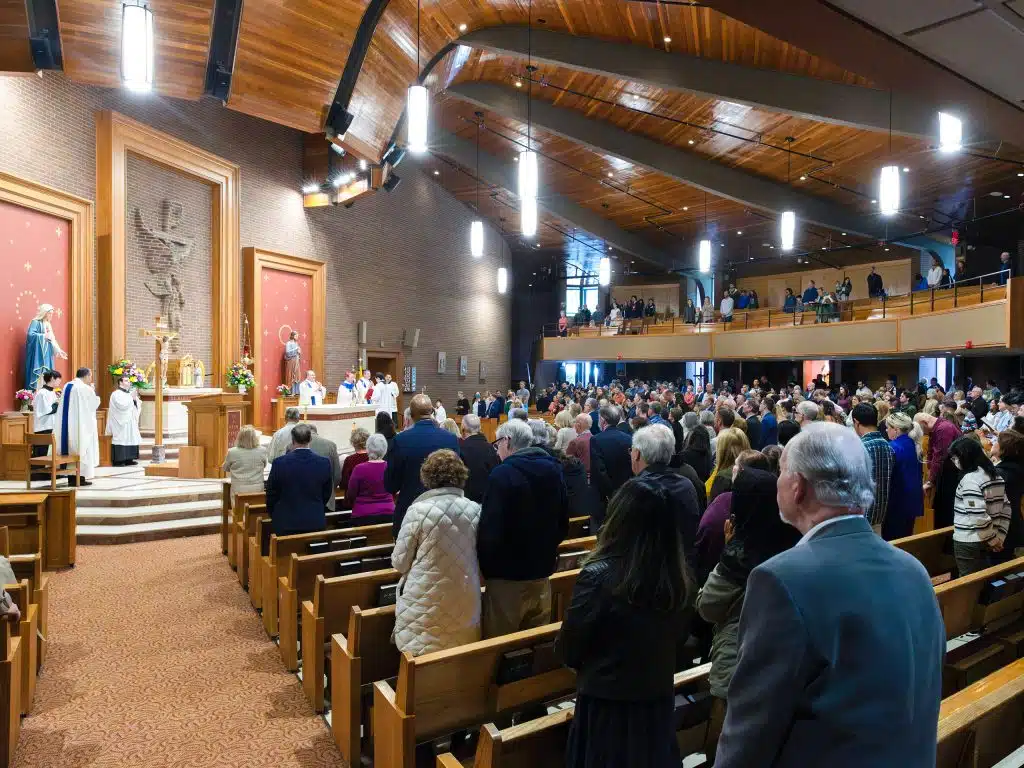Juliana Falconieri grew up among saints. Her uncle, St. Alexis Falconieri, was one of the seven founders of the Servite Order. The priest who taught Juliana as a child and deepened her love of God as she developed into a young woman was St. Philip Benizi, one of the early superiors of the Servites. Inspired by the holiness she saw around her, Juliana decided to affiliate herself with the Servites as a nun. Her friend and spiritual director, St. Benizi, heard her vows and gave her the habit of a Servite sister.
Although her parents have never been canonized, Juliana’s mother and father were very devout. They were also very wealthy. As the Servites were a new religious order, they had no church of their own, so the Falconieris built them one. You can visit it today in Florence – the Church of the Santissima Annunziata, the Most Holy Annunciation.
Now that they had a nun – Juliana – the Servites also needed a convent. Once again, the Falconieris came to the rescue: Juliana’s mother purchased a small palace near Santissima Annunziata, and that became the first Servite convent.
Shortly after Juliana moved in, several women joined her – they were the beginning of what would become a thriving community of nuns.
Through what we would call parish missions, the Servite priests and brothers sought to promote devotion to the Blessed Virgin Mary and to encourage Catholics to repent their sins and increase their commitment to the Faith. Juliana added works of charity to the Servite way of life by going out into the streets of Florence to help the sick, the helpless and the abandoned. It was hard, often dirty work; to keep their hands and arms unencumbered Juliana and the women who joined her modified their habit by shortening the sleeves.
An active apostolate outside the convent walls was virtually unheard of in the Middle Ages. Nuns might tend the sick in a hospital attached to their convent, or teach girls who boarded at their convent, but they almost never were seen in public, least of all in the poor neighborhoods. Juliana’s vision for Servite nuns was innovative: fixed periods of prayer and meditation, and time outside the convent, serving the sick and the poor. Many women in Florence and the surrounding area found this combination of the contemplative and the active life appealing, so they joined Juliana in her work.
St. Juliana is the patron of people who suffer from any type of chronic illness because during the last years of her life she was plagued by an undiagnosed stomach ailment. She never knew when an attack of nausea or severe cramps would incapacitate her. Eventually the illness proved fatal. As she was dying she was seized by such a severe bout of vomiting that the priest who came to anoint her felt she could not receive holy Communion. Instead, at Juliana’s request, he covered her chest with a corporal and laid the host over her heart. According to the story, a few moments later the host vanished.
Craughwell is the author of This Saint Will Change Your Life (Quirk, 2011) and Saints Behaving Badly (Doubleday, 2006).


The Good Shepherd